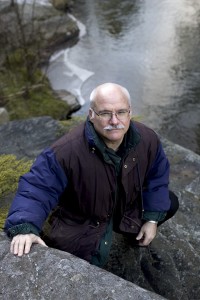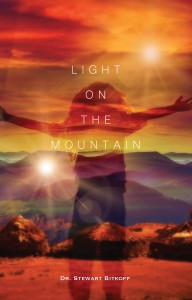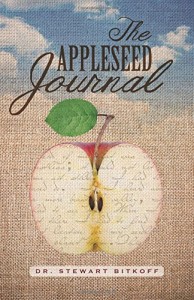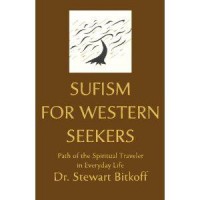My friend Nef abandoned social work as a profession years ago and entered the world of finance but he never abandoned his sincere interest in people. Everywhere he goes he meets people and in no time, gets them to tell him the story of their life. Walking down a street with Nef is like getting the latest gossip on your neighbors and soon-to-be friends. “This is John. John and his wife had a very sick son Peter that they cared for years. Although Peter’s death had been expected, it was a great shock when he died at the age of 14. That was ten years ago. A tragedy they have not gotten over. Charlie over there has a lot of real estate property and makes a ton of money. See Charlotte over there? Well, maybe we shouldn’t talk about her indiscretions.” I never wondered what Nef said about me to others when I wasn’t around. I had trouble with what Nef said when he introduced me to others.
“This is my friend Michael. He is a retired psychiatric hospital administrator and now teaches psychology at a local college. He is married with two sons. We take a Tai Chi class together on Saturday mornings and he has a lifelong interest in Sufism.” (There he did it again. Summed me up in just a few words, and did a pretty good job, but did he have to throw in the last part?)
The responses to Nef’s introduction are always the same. I think he could have said I was a polar explorer, a lion tamer, an astrologer to the stars. But what always turns the listener’s head, what sparks a note of interest is the mention of Sufism. Mercifully there are some people who know something or think they know something about Sufism. Some are actually eager to impress you with their knowledge. This usually takes the form of rapid fire questions to pigeonhole me just so. Most often I respond with a few shrugs or, “I’m not familiar with that.” And my new acquaintance moves on, content that he has superior knowledge and content to leave me in a state of ignorance.
Then there are most people who simply ask, “So what is Sufism?” I instantaneously take a mental scan of my questioner. If the questioner is being polite or curious, I need to be polite back. Most people do not want a lengthy explanation. Along with the question there is often the hidden command, never stated but implied: Tell me what I want to know and please, in twenty-five words or less. I must give an answer that satisfies their curiosity and permits my inquirer to proceed to the next stage of discourse.
I am always caught short when I am asked about Sufism, never knowing quite what to say. I stammer something like: it is a body of knowledge, a philosophy of life and a method of teaching us that we have a deeper spiritual nature and that we can become aware of this deeper nature and in so doing transform ourselves into a better, more whole human being. (Are you still reading? Do you want to read further?) I am not quite sure what my response means, it is so general it could apply to most religions and spiritual quests. But it fulfills my obligation to answer the question posed to me. I hardly ever get “Huh? What did you say?” Most often: “Something to do with Islam?” or “A little like TM?” To which I would respond, “Yeah, a little bit.”
What is Sufism? It seems like a reasonable question. One that should generate a reasonable answer. If the question was “What is a motorcycle?” the answer would be straight forward. “Think of a large motorized bicycle that runs on gas.” You get the idea.
But what about a question like, “How did we send a man to the moon.” A question simply put but with no simple answer. If asked to an astrophysicist she might wonder: Have you taken advanced calculus? How many physics courses have you taken? Any knowledge of jet propulsion? How about life support systems or communications? And what about the age-old cringe defying question – Where do babies come from? So hidden within these questions, and understood by both the questioner and the responder, is this phrase “and explain to me in words I will understand. I know you will only approximate the truth, but it will be good enough for me.” One of the sayings of holy prophet Mohammed is: Speak to each according to his capacities. Now that’s something I can relate to. I wish people would think this way when they ask about Sufism.
I found it very interesting that before the great Sufi and teacher Idries Shah published over twenty books in Sufism he first published books on Oriental Magic. I could almost hear him say, before we discuss Sufism, let’s be clear what Sufism is not.
Back to my mental scan, I ask myself whether the questioner is asking to learn something about me or something about him or herself. If I scent a whiff of self interest, my whole demeanor changes and I become the questioner. With gentle probing I ask questions like “What are you looking for? What efforts have you made? What experiences have you had? What did they mean to you? Have you been satisfied with your spiritual journey? I’ve met some fascinating people along the way.
One could probably take a course about Sufism in an Islamic studies department in a major university. And I am not disparaging this. Anyone who takes such a course or reads books on one’s own on Sufism will gain a lot of information and this is essential in its own right. But as everyone who reads this knows, there is quite a difference between reading about a kiss and actually kissing someone. Knowing takes on a new dimension when the experience becomes visceral. If anyone truly wants to know about a peach, one must eventually get around to a taking a bite.
Many people are content with shallower forms of knowledge. And there is nothing wrong with this. After all, who really wants to know the intricacies of space flight? I, for one do not. I also have no interest in sky or scuba diving. I am content to watch these activities on TV. I have long standing fears that I have no desire to explore. I also do not like asparagus. I know these aversions may be my loss, and in some cases represent personal failings. To my credit I have been in situations that have stretched and challenged me to do more and be more than I thought possible. Which is all to say, Sufism is not for everyone. If you want more than intellectual knowledge, know that Sufism is not a spectator sport.
There may be people walking the face of the earth who, while minding their own business, are suddenly hit with divine revelation and become a person with saintly skill and knowledge. I have never heard of such individuals though they might exist. There may also be people who are born with spiritual rank. I’ve heard about the search for the incarnated Buddhist monks. The persons doing the searching seem to have an implicit way of recognizing just the right person they are searching for. I know the sage Krishnamurti was found during one such search. I cannot speak with any authority on such traditions, though it does point to a specific concept that has resonance: capacity. All of us have some capacity for spiritual knowledge. Under the right circumstances, in the right time and with the right people, who knows what could happen?
I remember speaking with a young woman when I felt as if a conduit had opened between us. The purity of her heart was like an enveloping blossom. Being near her was like being next to the door of a flower shop, the mingled scent of so many essences. I began to swoon, not with attraction to her but to the attraction of my heart’s desire. I asked her if she was feeing anything peculiar. She looked at me funny and said no. I began to speak to her about the secret of her heart’s desire. And a bond between us was sealed.
For many years I wanted so much. I wanted to be a Sufi, whatever I imagined that to be. Foremost I wanted knowledge: knowledge about the mystery of existence, knowledge about the mystery of life and death, knowledge of what I needed to do or become to earn such knowledge, knowledge how to heal and help others, knowledge about the future of mankind, knowledge about what was to become of me. Where did this thirst for knowledge come from? Perhaps this was and is a continuing gift from God. Like a drowning man willing to drink anything to slake his thirst I was willing to try my hand at any approach that did not seem overtly foolish. In the midst of my strivings my teacher found me. Although I didn’t realize it at the time, it was the start of a reawakened life. I met with my teacher three to five times a week for several years. For the most of my early meetings I had no idea what was going on in these sessions. What happened at these meetings were seemingly inconsequential conversations. What were my plans for the weekend? How is (fill in the blank) doing? At first I didn’t think very much was going on but still something inside me kept me coming back. My teacher was Muslim but he hardly ever made reference to it. In fact, he hardly spoke about himself at all. From time to time I would read his recommended books and we would discuss them. I was encouraged to come with questions. I had little appreciation of the more subtle forms of communication. Outwardly, he was concerned with my well being. On an inner level I felt imperceptibly nourished. In the latter years, I had fewer questions and no longer felt the need to talk.
I began to see that my prior attempts at gaining inner knowledge were based on wrong assumptions. I thought that as my experience grew I could wisely pick and choose the most appropriate ideas, methods and course of action. It was as if I was building a car with one wheel from a truck, one wheel from a motorcycle, two tank treads, an outboard motor for an engine and the chassis of a Maserti. No wonder my car never moved. Not only was this not a fruitful approach, I came to see that I did not know what approach would be best for me. My teacher was like a doctor, capable of diagnosing what I needed and capable of providing the correct treatment for my inner condition
Once you have tried every approach on your own and your head hurts from banging it against every known door, you stop and feel stupid. Worse you may feel unworthy and humiliated. But this is when knowledge becomes possible. Once the attic is cleared of its cobwebs and rubbish it can be replaced with something more useful. This has been the open secret of so many spiritual paths. Humility is not an end in itself. It is the vehicle for higher movement.
Another vehicle is prayer. It is the prayer of Moses on Mount Sinai, taking off his shoes and forced by an inner need to bury his face in the dirt because he is before his Master. Prayer is movement, a desire of the soul to be near his or her beloved. It is a supplication born of hunger. It is the joy of visitation. The prayer of the applicant is a form of communication. It begins with “I am here” and ends in a place without words. It is an acknowledgement of the drop of water realizing his or her wetness in the face of the ocean of which he or she is a part. What about the prayer of the needy and the wishful? Can you ask for things? Sure my teacher would say. Ask for anything you want! If it is meant to be, you’ll get it.
Only I never seemed to get it. Then I remembered the seriousness and attentiveness I lavished on the I Ching many years ago. How did anyone make any sense of its cryptic statements? Crossing the great water – Did this mean I should ask out the cutie who up until now hadn’t graced me even with a glance? Or should I ask my boss for that well deserved raise? As I delved into the book I started to treat the book, as Carl Jung suggested, as a venerable sage. I became more familiar with Chinese philosophy and at the same time began to better understand my motives for asking my questions. I began to treat the answers I received with new respect. I never claimed to be an expert in the I Ching but as my life unfolded, I began to understand myself in a more honest light and better appreciated the choices that lay before me and the relationship of my choices to the eventual outcomes. I took this attitude towards prayer and the mysterious Divine. I was in God’s hands now. Over the course of time, my general state of anxiety slowly dissolved. In its place was contentment and with a new-found freedom to pursue life guided by the scent of the divine presence.
Many people have written about meditation, contemplation, mindfulness, unleashing inner powers and the like. I certainly do not want to add to the confusion. But I have been meditating for many years and the role of my meditation has changed as I have changed. Besides the benefits that psychologists and health professionals claim, meditation has become a deep ocean in which I can bathe and come out refreshed. It is a place where my true self resides. It is an affirmation of who I am and who I yearn to be.
I once read that what makes a mystery a mystery is that there is something we know well, but yet cannot fully comprehend. This defines so much of our worldly life. We experience this whenever we encounter the ocean. It is teeming with life. Its depths are too great for us encompass. At any point in time, we can know something about it but our mind cannot capture it in its entirety. On an inner level, each of us has experienced love in our life, whether as a child, as a mother or father, a sister or brother, a sexual partner, or even with Fido. We cannot take out our love and give it to our scientists to examine under a microscope. We cannot measure it on a scale. Yet anyone who has loved or been loved does not doubt the existence of this most powerful emotion. Spiritual experience is like this. Engagement in Sufism is like this. It is this quality of experience that distinguishes the academic from the person who seeks to know in a direct and personal way. Many, including the classical masters (Rumi, Hafiz and Saadi to name a few) have tried to explain and teach the inner workings of the Sufic experience. The language of Sufism has always been the language of the heart. And it is through the heart (Rumi writes: the expansion of the breast) that the aspirant learns to validate his or her experience. It is a guidepost, a beacon, the organ that seeks the object of its desire. It is like an iron filing that becomes sensitized to other iron filings and to stronger magnets. It is the heart that connects us to one another, to the present and the past.
No mention about Sufism would be complete without reference to service. This is not a homework assignment or a compulsory act done to satisfy some credential to enter the Sufi union. The call for service arises with the deepening knowledge of who we are as human beings, our relationship to God and our relationship to his other creations. Service can take many forms but at the root, we are all servants of the one God. Service may be required for specific people, at some specific times and places, but for true service to happen, one must know how to serve, who to serve and when to serve.
So what is Sufism: It is a burning in the heart that can only be quenched by Divine love. It is becoming the embodiment of sincerity for this is the key to attracting a teacher.
It is the recognition and acceptance of a teacher who has recognized whatever latent capacity lies within you.
It is adopting of the cloak of humility for humility is conducive to knowledge.
It is walking the path of service and being thankful for what you are given.
May you be blessed with the peace you seek.
——-
If you would to know what has drawn Michael to Sufism, you can read his story, Adventures in Sufism, Stories of a Bronx Childhood available on Amazon.com. Michael can be reached at mgreeniad@gmail.com








{ 2 comments… read them below or add one }
It is difficult to explain an experience of union as in Sufism without being pigeonholed into Islam, which is in the spotlight now as a religion of terror by the uninformed public.
I would look over the situation carefully before making many statements. Usually I would just call it a form of mysticism, with a short answer, and wait for discernment.
A good article, indeed. Victor.
Hi Victor:
Thanks for your comment; yes, Sufism is much wider/deeper than Islam. Yet many would disagree with this . . .